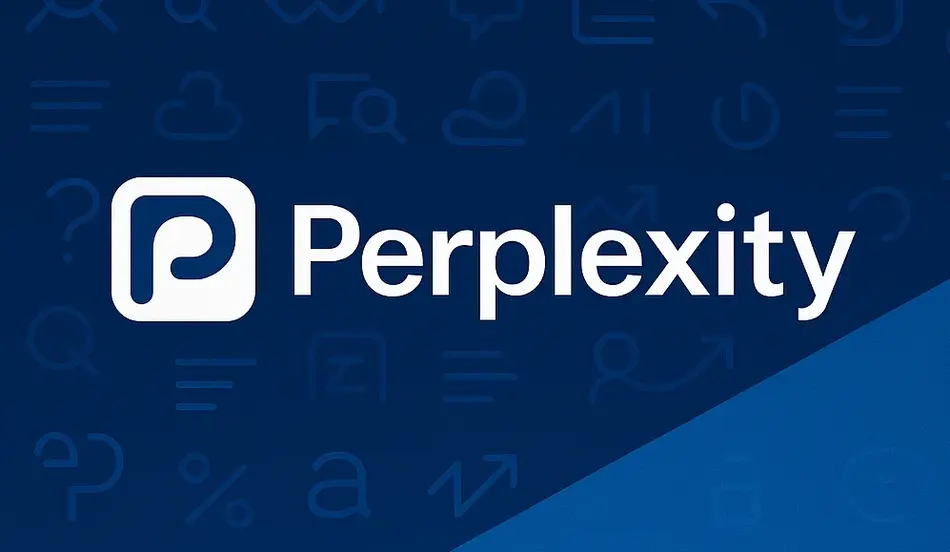An AI company did what no one thought was possible—it made people stop using Google. Perplexity AI, led by CEO Aravind Srinivas, has achieved something remarkable in just a few short years: going from an idea to a multibillion-dollar company that’s redefining how we find information online. Even Cristiano Ronaldo used Perplexity to help write his award speech, demonstrating its mainstream appeal.
The company’s success stems from a fundamental shift in how we approach information retrieval. Instead of providing links to sift through, Perplexity functions as an “answer machine” that delivers direct, sourced responses to any question. This approach has captured the attention of users worldwide, from celebrities to everyday consumers seeking reliable information.
Democratizing Knowledge and Curiosity
At its core, Perplexity represents a democratization of knowledge that challenges traditional academic gatekeeping. The company’s mission centers on a simple but powerful question: “Why should academics be the only ones who are allowed to ask questions?” This philosophy drives everything they build, from their search engine to their upcoming Comet personal assistant.
The smartest people have always been curious, but most people lack the platform, tools, or exposure to engage in meaningful questioning. Perplexity aims to give everyone access to the same information and research capabilities that were previously reserved for elite institutions. By providing accurate, sourced answers to almost any question, the platform becomes a foundation for deeper inquiry and discovery.
This equalizing effect extends beyond search. The company envisions a world where anyone can engage in the kind of deep, curious questioning that has historically been restricted to universities. Users can ask Perplexity to explain complex academic papers, research methodologies, or scientific concepts without needing access to elite professors or expensive educational resources.
Comet: The Second Brain Revolution
Perplexity’s next major innovation, Comet, represents a leap from information retrieval to personal assistance. Described as a “second brain” or personal assistant, Comet handles the mundane, time-consuming tasks that drain mental energy, allowing users to focus on creative and strategic thinking.
The concept addresses a fundamental inequality in modern society. Billionaires and elite professionals have teams of assistants handling scheduling, research, booking, and administrative tasks. Regular people must do everything themselves, spending hours on activities like finding doctors covered by insurance, researching purchases, or managing travel arrangements.
Comet aims to bridge this gap by automating these routine tasks. Examples include handling customer service interactions, managing email subscriptions, monitoring stock prices, and even rebooking flights when prices drop. The system runs in the background, working even while users sleep, to optimize their daily lives and remove friction from routine activities.
Comet: The Second Brain Revolution
Perplexity’s new breakthrough — Comet — is more than a search tool. It’s your personal AI assistant that works while you sleep — scheduling, researching, booking, and managing the noise of daily life. What billionaires do with entire teams, Comet does autonomously, bridging the gap between information and action. The Second Brain Revolution has begun — and it’s coming for everyone.
Explore AI & Automation Jobs →The Academic Transformation
The implications for academia are profound. Traditional academic institutions have often focused on credentialing and career preparation rather than fostering genuine curiosity and questioning. Perplexity’s tools could fundamentally change this dynamic by making knowledge more accessible and encouraging deeper inquiry.
The ideal academic environment should encourage students to question foundational assumptions and explore topics that others might ridicule. Great discoveries have always come from people being curious and relentless about questioning the status quo. Tools like Perplexity can support this by providing instant access to information and helping students understand complex concepts without needing access to elite academic networks.
This shift could lead to a new kind of academic environment where the focus shifts from credentialing to genuine intellectual exploration. Students could engage in the kind of deep questioning that led to breakthroughs like Einstein’s relativity theory or Larry Page’s web search innovations, but with better tools and broader access to information.
Hardware and Privacy Considerations
As AI becomes more powerful, hardware considerations become increasingly important. Perplexity is preparing for a future where AI models can run locally on personal devices, which would enable complete privacy and faster response times. This local processing capability could transform how we interact with AI assistants.
The company is already working on local desktop applications and exploring how Apple’s chip improvements might enable running GPT-4 class models on MacBooks within the next year or two. This would create an “end-to-end private browser” where all data, reasoning, and model processing happens locally on the user’s device.
This local processing capability opens up possibilities for personalized AI models that learn from individual users’ data without ever sending information to external servers. Users could own their AI models, with all training and updates happening on their personal devices, creating truly private and personalized intelligence systems.
The Operating System for Life
Perplexity envisions Comet as more than just an app—it could become the operating system for human life. Just as computer operating systems manage processes and memory for applications, Comet would manage the processes and information flow of daily life, orchestrating tasks across different platforms and services.
This vision addresses the current fragmentation of digital life, where users must manually coordinate between different apps and services. Instead of giving up agency, users would delegate the boring, stressful aspects of life to AI while maintaining control over the interesting, creative parts that bring fulfillment and meaning.
The company is working toward mobile versions for iOS and Android, enhanced voice interaction capabilities, and background processing that works even when devices are closed. These developments could make AI assistance as natural and ubiquitous as using a smartphone today.




